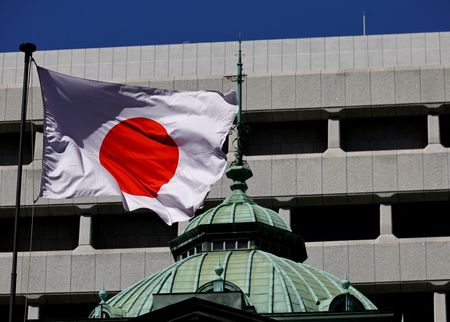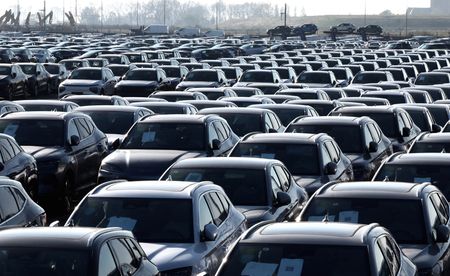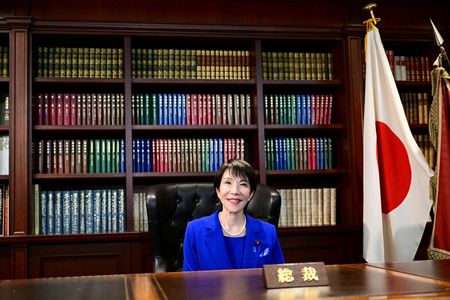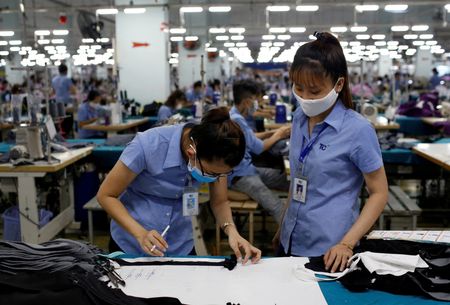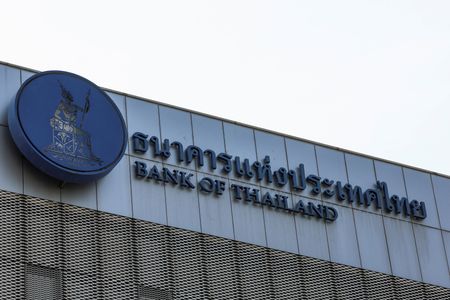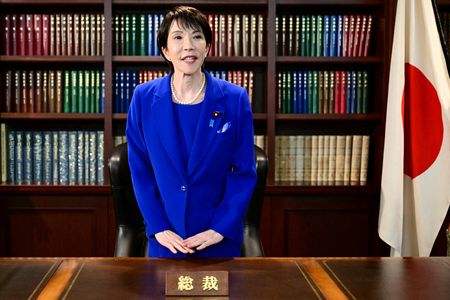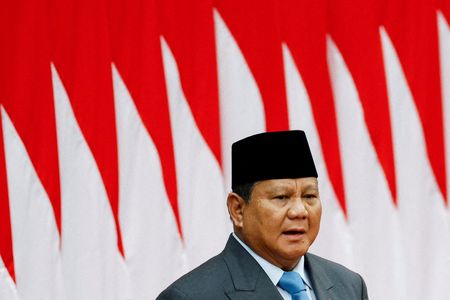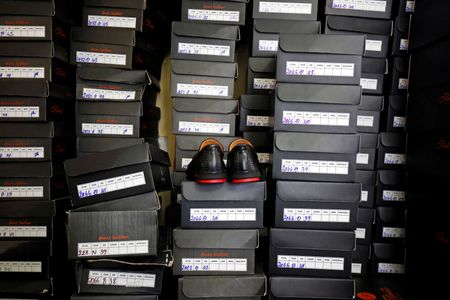By Leika Kihara
TOKYO (Reuters) -The Bank of Japan on Monday maintained its cautiously optimistic view on the economic outlook, but warned rising food prices and U.S. tariffs could weigh on household and corporate spending.
In a quarterly report on regional economies of Japan, the central bank maintained its assessment for eight areas to say they were recovering moderately or picking up, and cut the assessment for one area.
“Some regions cited companies in their area as saying they might need to curb wage increases if U.S. tariffs lead to sharp declines in profits,” the BOJ said in a summary of discussions at a quarterly meeting of its regional branch managers.
But other regions saw companies projecting the need to keep raising wages because of labour shortages, increases in minimum wages and recent hikes in food costs, the summary said.
The assessment will be among factors the BOJ will take into account in deciding whether to raise interest rates, or keep them steady at 0.5%, at its next meeting on October 29-30.
While U.S. tariffs were weighing on exports and outputs, some regions saw brisk demand for artificial intelligence (AI) related orders underpinning their economies, the summary said.
Many companies planned to continue increasing capital expenditures to streamline operations and meet rising information technology-related demand, though some planned to put off or review their spending plans on uncertainty over the impact of U.S. tariffs, it said.
The BOJ exited a decade-long, massive stimulus last year and raised interest rates to 0.5% in January on the view Japan was on the cusp of sustainably achieving its 2% inflation target.
Governor Kazuo Ueda has signalled the BOJ’s readiness to keep raising rates if the likelihood of the economy seeing steady inflation, driven by sustained wage gains and domestic demand, heightens.
While inflation has exceeded the BOJ’s 2% target for over three years, Ueda has stressed the need to tread carefully in hiking rates to ensure the hit to corporate profits from U.S. tariffs do not derail steady wage gains seen in recent years.
(Reporting by Leika KiharaEditing by Chang-Ran Kim, Christian Schmollinger and Kim Coghill)

